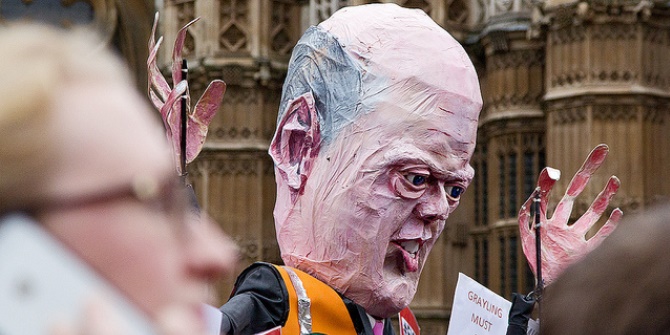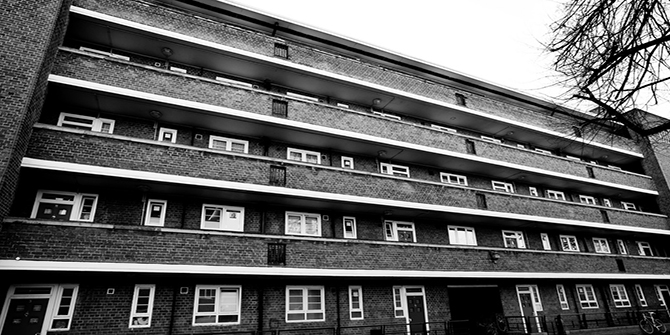 When it comes to adopting, fostering, or working with children, all sex offenders tend to be tarred with the same brush. Clearly very careful screening of people working with or caring for children is important. But Helen Reece argues that blanket bans on sex offenders adopting or fostering children violate their human rights and may not necessarily work in the best interests of the child.
When it comes to adopting, fostering, or working with children, all sex offenders tend to be tarred with the same brush. Clearly very careful screening of people working with or caring for children is important. But Helen Reece argues that blanket bans on sex offenders adopting or fostering children violate their human rights and may not necessarily work in the best interests of the child.
Convicted sex offenders are currently prohibited from working with, and adopting children. The Safeguarding Vulnerable Groups Act Vetting and Barring Scheme was passed in 2006, largely as a response to the murder of the schoolgirls Jessica Chapman and Holly Wells by a school caretaker in Soham in 2002.
Now, as the government plans to review the Vetting and Barring scheme, it is time to return to commonsense measures to prevent unsuitable people from working with children, by allowing cases to be judged on their individual merits. A blanket ban contravenes the non-discrimination principles enshrined in the European Convention for the Protection of Human Rights and it could leave the government open to legal challenge if the policy does not change. The review’s final recommendations will be announced early next year.
Parliament has already recognised that some sex offenders are suitable to look after children. This recognition has so far only applied to sex offenders who are related to the children or are pre-existing foster carers. But there is no reason why all sex offenders should not be considered as potentially suitable to adopt or foster children, or work with them. The Vetting and Barring Scheme and other legislative measures single out sex offenders for unfair special treatment and they destroy the principle that a prisoner pays his or her debt by serving their sentence before re-entering society on equal terms.
Sex offenders have relatively low reconviction rates compared to other types of offenders. Three-quarters of sex offenders are never reconvicted. Despite growing public concern over paedophilia, the numbers of child sex murders are very low and they have remained virtually unchanged for 40 years.
In one case, grandparents were banned from fostering their grandchildren because the grandfather was a convicted sex offender. He had a conviction for unlawful sexual intercourse with a 15-year-old girl, an offence that he had committed 36 years previously at the age of 29. The parents involved were unable to look after their children, who were already living with their grandparents when the decision was made, following the introduction of new regulations in 1997. This arrangement was upheld by the High Court in 1999. The grandparents clearly were the best people to look after those children because the parents were unable to do so and everyone connected with the case was happy with the arrangement. Clearly the grandfather’s past actions were wrong, but that did not mean that he would be a danger to his grandchildren.
Furthermore, if we believe that blanket bans are an effective and legitimate means to protect children, then we should no more allow cohabiting couples to adopt or foster than convicted sex offenders. Cohabiting couples are more likely to separate than married couples, with sometimes very harmful consequences to children. But in 2008, the House of Lords (in a case known as Re P) held that a bar on adoption by unmarried couples is unlawful discrimination contrary to Article 14 of the European Convention for the Protection of Human Rights. The case emanated from Northern Ireland where a heterosexual couple, who had been living together for several years, were deemed ineligible to adopt because they were unmarried. The Lords ruled that while the state was entitled to take the view that it is generally better for children to be brought up by married couples, the prohibition was ‘based upon a straightforward fallacy, namely, that a reasonable generalisation can be turned into an irrebuttable presumption for individual cases.’
The same reasoning in the 2008 case applies to sex offenders precisely because adoption law requires the court to consider the best interests of the child on a case-by-case basis. And in November, the High Court ruled in favour of a challenge by the Royal College of Nursing to the lawfulness of the automatic barring element of the Vetting and Barring Scheme, after a group of nurses had been automatically placed on the barred list, which they claimed denied their human rights.
In June, Home Secretary Theresa May halted the vetting scheme, claiming that it is disproportionate, burdensome and infringes on civil liberties, and had “draconian” implications in which people were assumed guilty until proven innocent. Rather than presuming that everyone is a potential risk to children and must therefore be vetted, any vetting or barring should be based on very strong evidence that they are a risk. This would represent a victory not only for human rights but for protecting the best interests of children.
Click here to respond to this post
Please read our comments policy before posting








Despite the Home Office claiming that “This wouldn’t exactly go down well with the public”, Helen Reece may find some interesting support at http://theopinionsite.org which deals with the manner in which politicians of all parties are too afraid of the tabloids and the public to do anything positive for sex offenders. There are currently 48,000 registered sex offenders in the UK; in 1999 there were 3,000 and the numbers will only ever increase. Oxford University research (Roger Hood) showed a reoffending rate of less than 10% for so called ‘paedophiles’. It is worth remembering that we do NOT live in the US and we are Europeans. We should therefore follow the European model on this matter, not least bacause they no longer seem to have the same problems as we do here. Then again, they do not have a massive Child Protection Industry worth billions either.